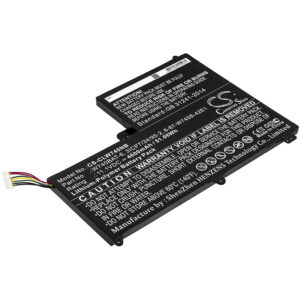-
$87.40
Samsung 1588-3366, AA-BP1TC6W, AA-PB6NC6W, AA-PB6NC6W/E, AA-PB6NC6W/US, AA-PB8NC6B, AA-PB8NC6B/E, AA-PB8NC6B/US, AA-PB8NC6M, AA-PB8NC6M/E, AA-PB8NC6M/US, AA-PL8NC6B, AA-PL8NC6W CS-SNC10HB
Samsung11.1VSamsung
$87.40Panasonic CF-VZSU59U, CF-VZSU60AJS, CF-VZSU60U, CF-VZSU61AJS, CF-VZSU61U, CF-VZSU62U, CF-VZSU64AJS, CF-VZSU64U CS-CRN100NB
Panasonic7.2VPanasonic
$87.40DELL 01P6KD, 062MJV, 1P6KD, 4GVGH, 62MJV, M7R96, P56F, P56F001, T453X CS-DEX195NB
DELL11.4VDELL
$87.40Lenovo 5B10X02599, 5B10X02602, L19C3PF7, L19D3PF5, L19L3PF5, SB10X02596, SB10X02598 CS-LVP315NB
Lenovo11.1VLenovo
Lithium batteries come in various chemistries, including lithium-ion (Li-ion), lithium polymer (LiPo), and lithium iron phosphate (LiFePO4). Each chemistry has its own set of characteristics, such as energy density, safety, and cost.
Energy Density: One of the primary advantages of lithium batteries is their high energy density, which means they can store a significant amount of energy in a relatively small and lightweight package. This makes them ideal for portable devices where size and weight are crucial factors.
Rechargeability: Lithium batteries are rechargeable, allowing users to charge and discharge them multiple times. They have a relatively low self-discharge rate, which means they can hold their charge for extended periods when not in use.

Get 5% off
Enter your email below and coupon code will be automatically applied to your shopping cart.
















